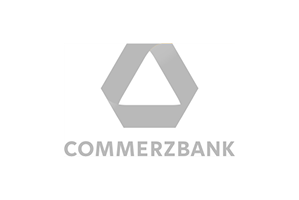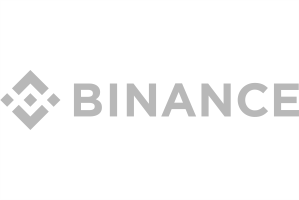The licensing process in Vilnius and other regions has undergone a strategic simplification, which has significantly increased the inflow of investments into the industry. This strategic approach not only contributed to the country’s economic growth, but also positioned Lithuania as a beacon for those looking for a dynamic crypto business ecosystem.
What activities can be carried out after obtaining a crypto license in Lithuania?
- Convert cryptocurrency to fiat and vice versa. Holding a cryptocurrency license in Lithuania grants businesses the ability to facilitate conversions between cryptocurrencies and traditional fiat currencies. Customers can easily purchase or sell utility tokens against currencies such as the US Dollar, Euro, British Pound, and more.
- Engaging in Staking Activities. VASPs (virtual asset service providers) have the privilege of utilizing staking as an additional method to generate passive income from cryptocurrencies. Many blockchain networks employ Proof-of-Stake consensus mechanisms and their counterparts. Staking presents a profitable alternative to the traditional holding of cryptocurrencies, somewhat analogous to earning interest on bank deposits, with potential yields reaching 10% per annum or even higher.
- Secure Crypto Storage Solutions. Under the Lithuanian VASP license, operators can securely store customers’ crypto assets through custodian wallets. This means that VASPs can create wallets for their clients while safeguarding the private keys associated with these wallets.
- Balance-Related Information Services. Authorized VASP has the authority to oversee and protect clients’ cryptocurrency depository wallets, providing them with information services related to their balances and details of incoming and outgoing transactions.
- Fiat Management and Exchange. VASPs are permitted to accept fiat currency as a prepayment for services, primarily for conversion into cryptocurrencies. This prepayment can be tracked in the client’s account as a “balance in fiat currencies.” While custody of fiat funds isn’t allowed under the Lithuania VASP license, operators can store the prepayment indefinitely as a counter obligation, eventually converting it into cryptocurrency.
- Facilitating Crypto Transfers to Third PartiesVASPs can offer services that involve transferring cryptocurrency from a client’s wallet to a destination wallet specified by the client, acting as an intermediary. This service essentially serves as a crypto equivalent to traditional fiat wire transfers.
- Conducting Initial Coin Offerings (ICOs). Lithuanian VASPs are also permitted to conduct Initial Coin Offerings (ICOs), where they can introduce their cryptocurrency for the first time. It’s crucial to remember that, under an ICO, VASP companies are only allowed to issue utility tokens.
Advantages of cryptocurrency exchange licensing in Lithuania
In 2020, Lithuania introduced clear and transparent rules for obtaining crypto-licenses, enhancing its appeal amidst adverse changes in Estonian crypto exchange legislation (2020-2021), which raised share capital requirements and mandated control center relocation to Estonia. The Money Laundering Data Bureau’s (RAB) announcement of potential crypto license revocation further dims Estonia cryptocurrency-friendly reputation. In contrast, Lithuania stands out in the EU, enabling both legal cryptocurrency transactions and comprehensive crypto business ventures.
Binance (the world’s largest cryptocurrency exchange) operates under authorization to serve European clients from Lithuania.
Companies have the option to choose from two types of authorizations for cryptocurrency activities, and they can also acquire both licenses simultaneously.
- Virtual Currency Exchange Provider:
The “virtual currency exchange operator” permit establishes the legal framework for operating an exchange service, including commission-based exchange services for:- Converting one virtual currency into another.
- Exchanging fiat money for cryptocurrencies.
- Custodial Cryptocurrency Storage Service Provider:
- The “operator of deposit virtual currency” license offers services that include generating secure encryption keys for customer security and facilitating cryptocurrency transfers to others.
Lithuania also has an open register, where the company will be entered after authorization.
Lithuania cryptocurrency realm falls under the jurisdiction of the Financial Crime Investigation Service (FCIS), with services issued as specialized permits rather than licenses. Acquiring such permits involves a notification procedure, wherein crypto firms express their intent through documentation submission. FCIS assesses compliance and grants permits in line with legal requirements.
Comparison of conditions for obtaining Crypto licenses in Lithuania and other countries
Comparing the requirements for a crypto license Lithuania with those in Estonia and Poland, some key differences emerge. In Estonia, the minimum share capital for a VASP company is 12,000 EUR, and a physical office with equipment is mandated. In Lithuania, after an AML law amendment, the registered share capital must be at least 125,000 EUR, and a resident exclusive AML Officer is required. Poland emphasizes internal policies, qualified AML/CTF personnel, and customer identification. Lithuania approach includes reporting obligations, a risk-based approach, and no requirement for a local director, granting foreign investors management flexibility.
Requirements to Obtain a Lithuania Cryptocurrency Exchange License
The new prerequisites for obtaining Lithuania cryptocurrency license were introduced after an Lithuanian AML Law amendment in 2022 June 30 No. XIV-1374:
- The registered authorized capital must be at least EUR 125,000. However, monitoring of own funds is not mandatory, and there are alternatives that do not involve actual capital contribution.
- As per legal requirements, a company structure typically includes two distinct roles: a Senior Manager (e.g., a director) and an AML Officer. An exception allows for a single Senior Manager with AML experience/education. In cases of substantial turnovers, regulators may insist on the standard two-employee arrangement. These employees must have Lithuanian residence or citizenship.
- Licensed Lithuanian cryptocurrency companies are expected to take into account the local market and organize vital operations within Lithuania.
- Reputation-based criteria have also been established for VASP senior management, shareholders, and beneficial owners, including the absence of criminal records.
- The creation of anonymous accounts is prohibited, and lower limits (700 euros) have been set for customer identification.
The reporting obligations to the FCIS (including mandatory reports based on transaction amounts) and the requirement to keep records of customer data remain unchanged. This entails:
- Implementation of policies aimed at combating money laundering and terrorist financing.
- Compliance with international sanctions elations.
- Identification of customers and storage of their data.
- Implementation of a risk-based approach in the course of licensed activities.
- Reporting suspicious transactions and specific operations.
- Fulfill additional obligations dictated by the relevant laws.
Having a local director is a prerequisite for obtaining a Lithuania Vasp license.
Steps and Timeframes for Obtaining a Crypto License in Lithuania
- We assist in opening a start-up account to secure the authorized capital of EUR 2,500.
- After the client transfers the authorized capital of EUR 2,500 and we receive the bank printout, we draft the articles of association and additional documents based on the client’s corporate structure.
- We support the notarial transaction and supervise the submission of documents to the commercial register, ensuring that the company is entered into the register.
- The company entry in the commercial register becomes visible within a week.
- We support the increase of the authorized capital and the introduction of relevant amendments to the charter.
- Simultaneously with the increase of the authorized capital, we submit a special JAR form and a list of beneficiaries to the commercial register, register the company under the commercial code “lit Asset Service Provider”.
- Order a set of corporate documents (in electronic form) from the commercial register, including the Registration Card, the Articles of Association and the List of Shareholders, all in Lithuanian.
- Organize a sworn translation of corporate documents into English with subsequent notarization and apostille.
Taxation for Obtaining Crypto Exchange License Lithuania
- In Lithuania, the income tax stands at 15%, covering WHT and corporate tax.
- For small enterprises with under 10 employees and a yearly gross income of €300,000 or less, a reduced rate of 0-5% may apply.
- Cryptocurrency transactions are taxed based on their nature. If tokens are bought or sold similarly to other currencies, securities, or investments, no direct tax is applicable.
- Dividend tax, amounting to 15%, is imposed on distributed income.
- The provision of Lithuania cryptocurrency exchange services is exempt from VAT.
FAQ
Which authority regulates the activities of cryptocurrency companies in Lithuania?
The firm is obliged to notify the Financial Crimes Investigation Service (FCIS or FNTT in Lithuanian) before commencing operations.
How is a crypto company in Lithuania taxed?
In the European Union, financial transactions, including those involving cryptocurrencies, are exempt from value added tax (VAT) due to their financial nature. However, a corporate tax of 15% applies. Small companies with fewer than 10 employees and a total turnover of up to €300,000 may qualify for a 5% reduced corporate tax rate.
Which terms of obtaining a crypto exchange license in Lithuania?
- Company registration.
- Legal address provision for one year.
- Opening a bank account for a share capital deposit of €125,000.
- Preparation of KYC/AML policy.
- Brief business description.
- Complete KYC for owners and directors.
- Physical office.
- An exclusive AML officer is required.
- Acquisition of Lithuanian crypto license.
What is the AML / KYC policy?
AML stands for Anti-Money Laundering, a globally applied regulation. KYC, which stands for Know Your Customer, involves proper identification of clients for financial transactions.








